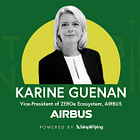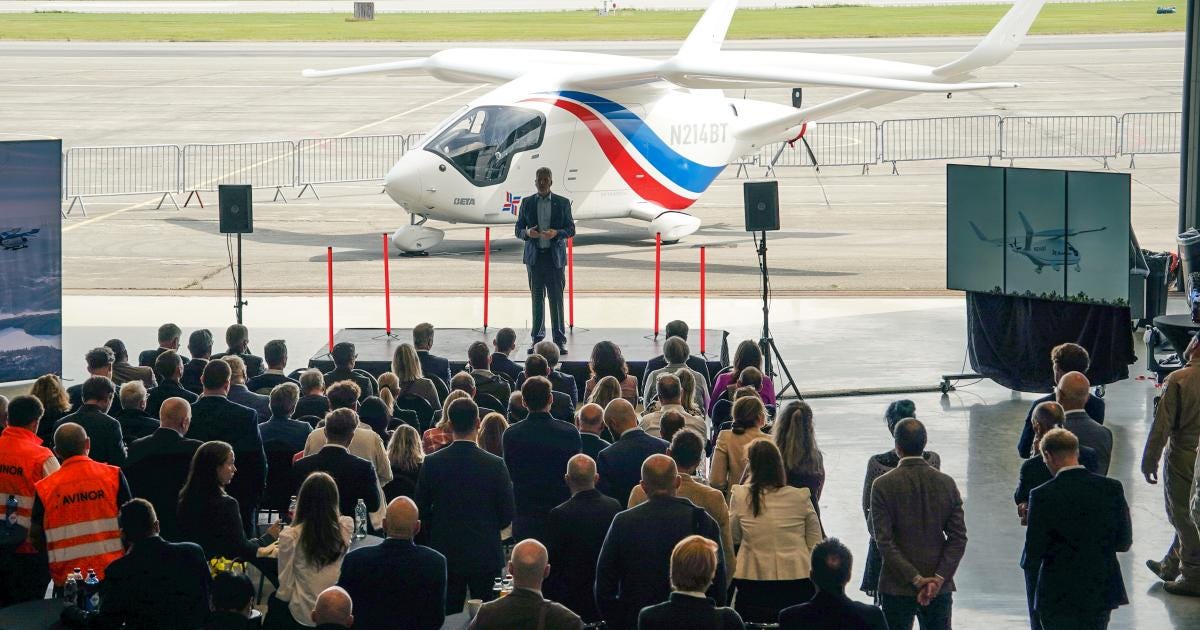#Sustainability20: Southwest Airlines sells renewable fuels unit in retreat from climate goals & more
Weekly Roundup - 15/08/25
Each Friday, we publish a round-up of the 20 most important stories on sustainable aviation. You can see previous editions of #Sustainability20 here.
Industry Updates
Southwest Airlines has sold its SAF subsidiary Saffire Renewables to Conestoga Energy, scaling back climate initiatives amid industry-wide struggles to meet emissions targets, despite earlier investments in ethanol-to-fuel technology.
IATA will host its 2025 World Sustainability Symposium in Hong Kong, convening aviation and energy leaders to accelerate SAF adoption and financing for the sector's net-zero 2050 goal.
A Reuters investigation has revealed only 22% of 165 announced SAF projects have materialised, with most stalled or cancelled due to feedstock limits and insufficient government incentives.
The zero-emission aircraft market is projected to grow from $7.86bn in 2025 to $10.25bn by 2030, driven by hybrid-electric systems and hydrogen propulsion advancements for regional routes.
CLIMATE WATCH: Heatwave brings hottest nights on record to the Middle East - The Guardian
Jordan and Israel have endured record-breaking "hellish" nighttime temperatures above 35°C, exacerbating heatwave health risks and highlighting climate change impacts in the Levant region.
Infrastructure and operational efficiencies
Aurrigo has secured a £1m contract to trial autonomous baggage and passenger vehicles at Teesside Airport, aiming to cut carbon emissions while improving operational efficiency from 2026.
Heathrow has reduced arrival delays by 20% using NATS' Pairwise spacing technology, which calculates precise aircraft gaps, trimming holding patterns and cutting emissions per flight by 19%.
Rolls-Royce achieved strong 2025 H1 profits through sustainable manufacturing, SMR nuclear projects, battery storage growth, emission cuts, and efficiency gains, positioning itself as a leader in low-carbon, resilient industrial innovation.
Sustainable Aviation Fuel (SAF)
Argentina's YPF will invest $400m in a SAF joint venture with Essential Energy, targeting export markets from its San Lorenzo refinery under the country's Large Investment Incentive Regime.
Indian Oil has become India's first ISCC CORSIA-certified SAF producer at its Panipat refinery, meeting global sustainability standards as the country pushes ethanol blending and cleaner aviation fuels.
Airbus is collaborating with Indonesia's IPB University to develop SAF from agricultural waste, though deforestation risks and infrastructure gaps challenge the 100-million-tonne annual production target.
Pertamina has begun shipping SAF from its Cilacap refinery for a Pelita Air test flight, using 2-3% recycled cooking oil in its 1,400 kilolitre/day production capacity.
Petrolimex has launched Vietnam's first SAF, blended from imported bio-components, with agreements signed to supply Vietjet and AEG Fuels for domestic flights under international standards.
Cemvita will build a Brazilian plant producing SAF feedstock from crude glycerol, partnering with Be8 under Rio Grande do Sul's bioeconomy push, including biofertiliser co-production.
New technology: Electric and Hydrogen
Bristow Norway has begun testing Beta Technologies' Alia CX300 electric aircraft on Stavanger-Bergen routes, marking Norway's first operational trials under its zero-emission aviation test arena programme.
The UK CAA has published eVTOL safety research with Warwick University, identifying 50+ risk areas for vertiport operations and automation ahead of anticipated commercial services by 2027.
Eve Air Mobility has raised $230m in a share offering backed by Brazil's BNDES, funding eVTOL development as it targets 2027 certification for its four-passenger Eve 100 model.
ZeroAvia plans to scale its ZA2000 hydrogen powertrain for regional jets by 2030, using high-temperature fuel cells to overcome cooling challenges in larger aircraft applications.
Electra is taking deposits for its 9-seat EL9 hybrid-electric aircraft after demonstrating ultra-short takeoffs at Virginia Tech, with ski resort trials planned to replace 5-hour drives with 40 minute flights.
Joby Aviation has begun final assembly of its FAA-conforming eVTOL in California, advancing toward 2025 certification while expanding military and Dubai air taxi partnerships.
The University of Seville has successfully tested a hydrogen fuel cell-powered drone under the EU's U5-Space project, combining solar-derived hydrogen with batteries for emission-free urban mobility trials.







